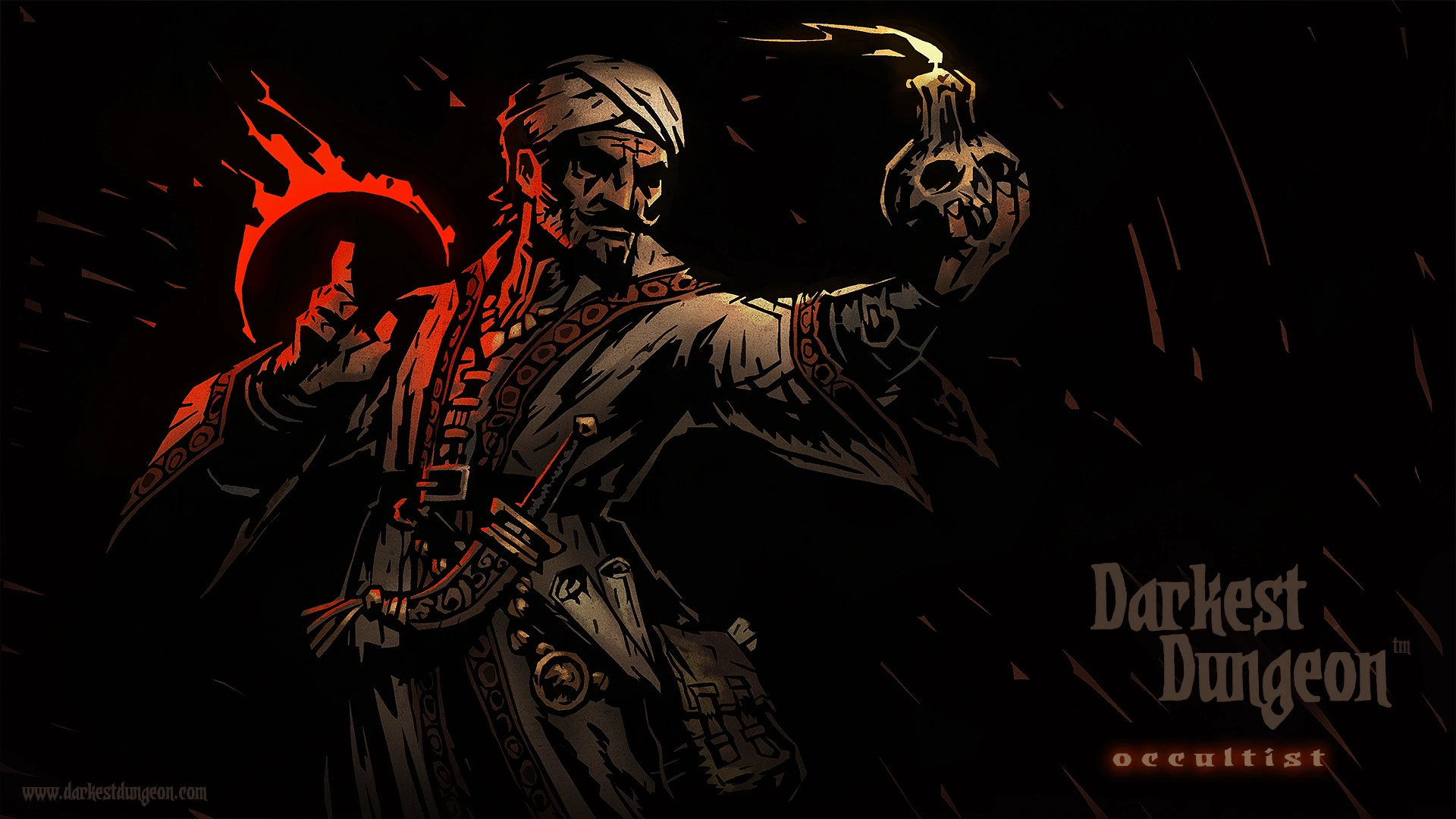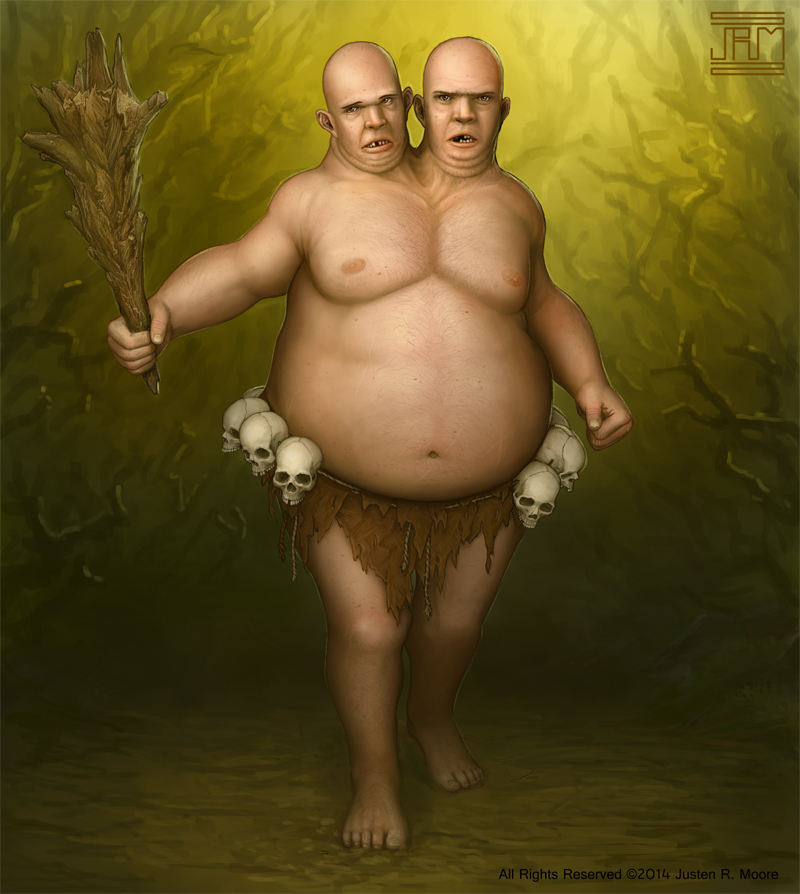Tunnels & Trolls (TNT) is a really simple game that
I like quite a bit. I don't want to over complicate the game because it doesn't need it, but I do think it lends itself well to little OSR-like hacks. For instance, I'm working on rules for massive combat called the
Mechs & Monstrosities Hack.
The warrior / rogue / wizard types in TNT are already pretty all-inclusive, but I thought I'd try my hand at designing an additional character type that fills a unique role or has a unique feel. I don't think it's adding anything that couldn't technically already be done in TNT, but hopefully it's interesting enough that people want to try it out anyway.
As with most of my stuff, due to lack of opportunity, this has not been playtested and will likely need playtesting, but hopefully it's a decent framework for what might be a functional character type.
This type fills roughly
three roles:
- It's a mixed magic / fighting class. It's very different from the rogue, but like the rogue, can be a multi-purpose character.
- It's meant to fill the monk / psionic character archetype. That's mostly just fluff, and honestly any of the TNT types could be made to fit that archetype, but this models it a little bit more specifically.
- Inadvertently it's become a charisma / face class. While not typically associated with the monk / psionic archetype, it just kind of made sense with how I built the type, and I think charisma really needs a boost in TNT. For every other class, charisma is the only attribute that doesn't contribute anything besides SR; it doesn't add HP or MP like CON or WIZ, nor combat adds, nor spellcasting. So this hopefully gives charisma a boost!
Mystics
Not all magic is drawn from the metaphysics of reality, or the divine. Some magic is drawn from the self, from those with presence, with an indomitable force of will. Those with the training and discipline, who hone their bodies and minds, transform themselves into something exceptional: the mystic.
Some mystics are extravagant; they wear exotic outfits and carry talismans. They often preach the divine or the occult, whether they believe this is the source of their power or not, and draw the attention of others like moths to flames. When they walk into a room, heads turn. Their very presence demands recognition. Rich or poor, native or foreign, they have an essence, a charisma, that transcends socio-cultural barriers. Their bodies may be unassuming in appearance, but they can channel their mental energies into potent psionic force.
Other mystics choose a more austere, ascetic life. They revel in manual labor, channeling their disciplined minds to strengthen their bodies. They are wise-men; they do not demand attention when they enter the room, but when they speak, others listen. They are more so warrior monks than mesmerists or occultists, but their power essentially draws from the same place, from existential and epistemological analysis. Their orders may acknowledge the spiritual, metaphysical, or divine, but they are more concerned with ordinary affairs, or philosophies relating to individuals. Some believe that their powers come from an arcane or divine source, but to these mystics, there is no meaningful distinction between the self and these outside forces.
Mystic Stats
- Can fight unarmed or with mystic focus weapons with (1d6 * STR Multiplier) + 1d6 + combat adds
- For human characters, this would mean 2d6 + combat adds
- This is the same as the Martial Arts rules in TNT Deluxe but with an additional 1d6
- Can spend 1 WIZ to add +1d6 combat dice when fighting unarmed or with mystic focus weapons, up to mystic level times per combat round
- Can channel psionic energy / ki through hand motions or mystic focus weapon for a 2d6 + combat adds ranged attack
- Cannot spend WIZ to add additional combat dice
- Use mental stats for combat adds when fighting unarmed or with mystic focus weapons (IQ, WIZ, CHA, LK)
- Can spend 1 WIZ on a SR to change a physical stat roll to mental stat roll: Str -> IQ, Con -> Wiz, Spd -> Cha
- Body and Mind are one: CON and WIZ are interchangeable for taking damage and casting mystic spells.
- Gain one mystic spell per level of mystic level or lower, in addition to being able to learn new spells in other ways (same as wizard and rogue)
- When using regular weapons, the mystic's psionic energy causes wear and tear to the weapon. Roll SR LK for wear and tear, on fail, the weapon deals -1d6 dice, and the next SR increases by 1 level.

Mystic Spell List
You can potentially include some wizard spells as well, although I do think mystics should have a more limited spell list than wizards. The spells should be evocative of wuxia, or something generally psychic / psionic.
Level 1
Third Eye
Cost: 2 WIZ
Duration: 30 minutes
Range to Cast: Self
Range of Effect: Self
Power up per level: Duration x2, or -1 to SR level
Restrict one sense to enhance another, providing +3 on SR rolls related to that sense.
Iron Fist
Cost: 2 WIZ
Duration: 1 combat turn
Range to Cast: Self
Range of Effect: Self
Power up per level: x2 Duration
Forearms and fists are covered in a metallic psionic coating, providing +3 armor for one turn when making an unarmed attack or attack with a mystic focus weapon (attack and armor on same turn as casting). Damage dice count as magical for any effect purposes. Armor bonus does not stack if wearing sleeved armor, gloves or gauntlets, or carrying a shield.
Hovering Water Lily
Cost: 2 WIZ
Duration: 1 combat turn
Range to Cast: Touch
Range of Effect: 5'
Power up per level: Duration x2, or Range to Cast x2 (i.e. 5', 10', etc.), Range of Effect x2, or increase to size or weight of object (i.e. medium, large, etc.), or walk on walls.
Small, lightweight objects can be made to hover around the mystic or psionically tossed (possibly as improvisational weapon attacks).
Whole Cloth
Cost: 4 WIZ
Duration: 10 minutes
Range to Cast: 5'
Range of Effect: Relative visual range
Power up per level: Duration x2, or increase size of object (i.e. medium, large, etc.), or Range to Cast x2, or add additional sensory effect (i.e. sound, smell, etc.), or capable of independent motion
Creates a small illusory object. If a target is suspicious (e.g. the illusion is implausible), roll a charisma SR to maintain the illusion. If the illusion is attacked, it immediately breaks. If the illusion is given a tactile sensory effect and used as an attack, it does not deal damage or provide combat dice, although on a successful charisma SR, the defender perceives 2d6 illusory damage, which is recovered as soon as the illusion is broken.
Level 2
There is No Spoon
Cost: 3 WIZ
Duration: N/A
Range to Cast: 5'
Range of Effect: 5'
Power up per level: Increase size of object (i.e. medium, large, etc.)
Through focus, the mystic can warp or break any small non-living, non-magical object (such as a spoon). If the object is being held or worn, such as a weapon, armor, or trinket, the target rolls for wear and tear, otherwise automatic.
Crouching Tiger
Cost: 4 WIZ
Duration: Passive for 10 minutes; 1 combat turn once activated
Range to Cast: Self
Range of Effect: Self
Power up per level: Duration x2, or number of defensive uses x2
Speed or charisma SR for a stealth attack against an enemy that does not see you. Roll combat dice for an opposed combat roll, and double the results if the SR was successful (otherwise regular damage). If the SR was successful but the opposed combat roll failed, take no damage. Can also be used to defend against stealth attacks for passive duration one time.
Level 3
Diamond Mind
Cost: 10 WIZ
Duration: 10 minutes
Range to Cast: Self
Range of Effect: Self
Power up per level: Duration x2, or Range of Effect x2 (i.e. 5', 10', etc.) to encompass allies
Mystics have immense willpower and even the ability to psionically impose their will on reality. They are immune to telepathy and can even fake their thoughts to a telepath (Charisma SR roll), and are protected by a shimmering aura that provides +3 armor against any kind of elemental attack and immunity to environmental factors.
ESP
As wizard spell, but level 3, cost 10 WIZ, charisma SR roll to succeed.
Discussion
Here are some design notes / concerns:
- Whereas the rogue is more like a true generalist, the mystic uses both magic and physical combat but in a more narrow way
- Giving mystics mental stat adds for combat and the ability to substitute mental stats for physical stats on SRs at a low cost reflects the "mind over matter" nature of monks, and can be flavored flexibly. It could be that they are shrimpy noodles whose "physical" abilities are entirely psionic, or they could be a shredded washboard whose physical strength comes from their indomitable will.
- Mystics have a more limited spell list than wizards (part of that is me being lazy, but even if I added more spells I want it to be limited), and are focused around wuxia and psionic-like abilities.
- Not unlike D&D, at low levels they're generally going to be weaker, because if they want to use mental adds then they have to fight unarmed or with a monk focus weapon which only deals 2d6, or maximum 3d6 if they pay 1 WIZ. This is hopefully offset by the fact that they can pretty much ignore physical stats, so they should have high combat adds and the ability to grow in both "physical" and magical ability more quickly than a rogue, who would have to spread their stats. As they level and can add more combat dice to their unarmed / mystic focus weapon attacks, they become more comparable to a warrior, but at the cost of WIZ.
- I'm still worried that this type is either woefully underpowered or woefully overpowered, it really needs to be playtested!


